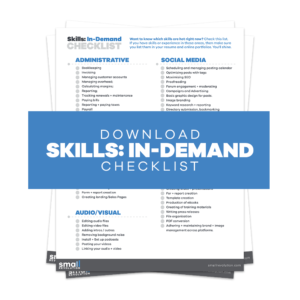Who doesn’t love the idea of working from the comfort of your own home and getting paid to put pen to paper (or more likely, finger to keyboard)? Surely it’s a no-brainer, right? Not necessarily.
Indeed, working as an online editor can be hugely rewarding, but this type of remote work definitely has its downsides, so make sure you have all the facts before making the leap.
For example, while you might be lured in by the promise of a flexible schedule and being able to work from anywhere, you should also be aware that job flexibility comes with its own obstacles; managing a work-life balance and creating boundaries can be more difficult when you are your own boss.
It’s important to note that some of the cons will be pros to certain people and vice-versa.
For instance, “being your own boss” is ideal for someone who is organized and a self-starter.
For someone who is not particularly proactive, and less able to efficiently manage their time, this could be a serious negative.
The Pros of Online Editing Jobs
The best aspects of this work-from-home job are obvious.
You probably already love the idea of rolling out of bed at 8.55 am and still being on time for your 9 am Zoom meeting, not to mention the very clear benefits of avoiding a rush-hour commute.
Depending on what type of contract you take, working from home and choosing your own schedule can be a game-changer. And you’d be in excellent company – Richard Branson worked from home whilst building the Virgin Group into a billion-dollar company.
Freelance Editing Is Very Accessible
Whereas a personal trainer might have to spend thousands of dollars on gym equipment, or a music producer must fork out a small fortune to acquire software and sound systems, for online editing jobs, all you need is a laptop (ok, maybe an internet connection too) and you’re good to go.
In lots of cases, this type of work will allow you to carve out your own niche, whether it’s academic manuscripts or travel magazines.
You Decide On the Work You Want to Do
Editing in a specialized field will also help you stand out from the crowd and find a specific type of client.
One lesser-known advantage to online editing is that, actually, you don’t need a qualification. If you write well, have an excellent eye for detail, and are motivated to work, there will be no stopping you.
A definite plus, which many people might not have thought about, is that online editing is a relatively mature industry, so a quick Google search is all it takes to see what someone with your level of experience could, and should, be earning.
Obviously, rates can vary a great deal, but The Chartered Institute of Editing and Proofreading has useful information on suggested minimum hourly rates as of March 2021 to give you an idea of what to expect.
Who doesn’t love the idea of working from the comfort of your own home and getting paid to put pen to paper (or more likely, finger to keyboard)? Surely it’s a no-brainer, right? Not necessarily.
Indeed, working as an online editor can be hugely rewarding, but this type of remote work definitely has its downsides, so make sure you have all the facts before making the leap.
For example, while you might be lured in by the promise of a flexible schedule and being able to work from anywhere, you should also be aware that job flexibility comes with its own obstacles; managing a work-life balance and creating boundaries can be more difficult when you are your own boss.
It’s important to note that some of the cons will be pros to certain people and vice-versa.
For instance, “being your own boss” is ideal for someone who is organized and a self-starter.
For someone who is not particularly proactive, and less able to efficiently manage their time, this could be a serious negative.
The Pros of Online Editing Jobs
The best aspects of this work-from-home job are obvious.
You probably already love the idea of rolling out of bed at 8.55 am and still being on time for your 9 am Zoom meeting, not to mention the very clear benefits of avoiding a rush-hour commute.
Depending on what type of contract you take, working from home and choosing your own schedule can be a game-changer. And you’d be in excellent company – Richard Branson worked from home whilst building the Virgin Group into a billion-dollar company.
Freelance Editing Is Very Accessible
Whereas a personal trainer might have to spend thousands of dollars on gym equipment, or a music producer must fork out a small fortune to acquire software and sound systems, for online editing jobs, all you need is a laptop (ok, maybe an internet connection too) and you’re good to go.
In lots of cases, this type of work will allow you to carve out your own niche, whether it’s academic manuscripts or travel magazines.
You Decide On the Work You Want to Do
Editing in a specialized field will also help you stand out from the crowd and find a specific type of client.
One lesser-known advantage to online editing is that, actually, you don’t need a qualification. If you write well, have an excellent eye for detail, and are motivated to work, there will be no stopping you.
A definite plus, which many people might not have thought about, is that online editing is a relatively mature industry, so a quick Google search is all it takes to see what someone with your level of experience could, and should, be earning.
Obviously, rates can vary a great deal, but The Chartered Institute of Editing and Proofreading has useful information on suggested minimum hourly rates as of March 2021 to give you an idea of what to expect.
| Type of work | Suggested minimum hourly rate |
| Proofreading | £27.50 |
| Copyediting | £29.90 |
| Substantial editing, rewriting, development editing | £34.40 |
| Project management | £37.20 |
| Indexing | £26.15 |
The Cons of Online Editing Jobs
If freelancing were a completely secure way of earning a living, everyone would be doing it, so take the time to consider the downsides, of which there are a few.
Working Remotely Can Be Isolating

Certainly with online work, there are a plethora of online communities at your disposal to keep you feeling connected and to answer any questions you might have (take a look at the Digital Nomads Around the World Facebook Group, the r/freelance subreddit, this Workfromanywhere Slack channel, and join the #FreelanceChat on Twitter).
Yet despite these great resources, not having anybody physically around you can sometimes be difficult.
It Can Be Hard to Find Balance
We’ll say it again: this kind of work requires someone who is motivated and self-disciplined. If you don’t do the work, you won’t get paid. It really is that simple.
While the words work/life balance don’t mean anything to some people, as a freelance editor it’s something that you’ll need to think about.
Just one more blog post, one more article, we hear you say!
Remember that you’ll need to create effective boundaries in order to keep your professional and personal worlds separate.
Remote Work May Come With Some Uncertainty
It’s also important to be aware of the potential for lack of stability in this industry. Maybe you’re not finding work as quickly as you thought you might, maybe you need to take a day off, maybe you get sick.
In an article for NPR, Sara Horowitz, founder of the Freelancers Union, backs this up:.
There are really big risks in freelancing, because the income is so episodic and freelancers aren’t entitled to unemployment insurance and this is really bad for low-wage workers in particular.
So bear in mind that as a freelancer, not getting paid sick leave, unemployment insurance or retirement savings will likely be some of the pitfalls of this kind of work – unless of course you’re employed directly by a company.
The reality is, that getting started as an online editor can be difficult, especially without a list of pre-existing clients.
It can take years to build up a reliable client list in a niche that interests you.
As with any industry, building professional relationships and proving yourself takes time.
Hone Your Skills With an Online Editorial Course
If, having considered the above, you feel that the world of online editing is for you then it’s well worth doing a training course.
While not absolutely necessary, it will give you the edge over any competitors and will help you get paid more and attract your dream client. We have linked to some of the best courses below.
- Chartered Institute of Editing and Proofreading
- The Publishing Training Centre
- NYU
- ACES: The Society for Editing
- Queen’s University
Organizations That Offer Online Editor Jobs
Confident you can overcome any obstacle that remote copy editing can throw at you? The below sites are some great places to start your search for remote editing positions.
In addition to these platforms, you can also check with an internet marketing agency or on Glassdoor.
Know Your Worth
For those based in the United States, check out Zippia, where you’ll find a comprehensive breakdown of all kinds of data relating to online editor jobs, from state-by-state analysis to information on which companies pay the most. Top tip – check out Entrepreneur and Martha Stewart!
The following sites also have invaluable information on hourly rates and salaries, whatever your level of expertise.
Things to Consider
Navigating decisions that affect your career is always tricky, so take the time to examine your options.
- Think about whether you want to work full time or part time, and if it would be your primary source of income.
- Be realistic about how it would fit into your current schedule and about how much time you want to spend working. You’ll have to make time to do the work, and it requires a certain amount of motivation and self-discipline.
- For the right person, working online as an editor can broaden your horizons and be incredibly rewarding, both financially and personally – just make sure it’s right for you.

